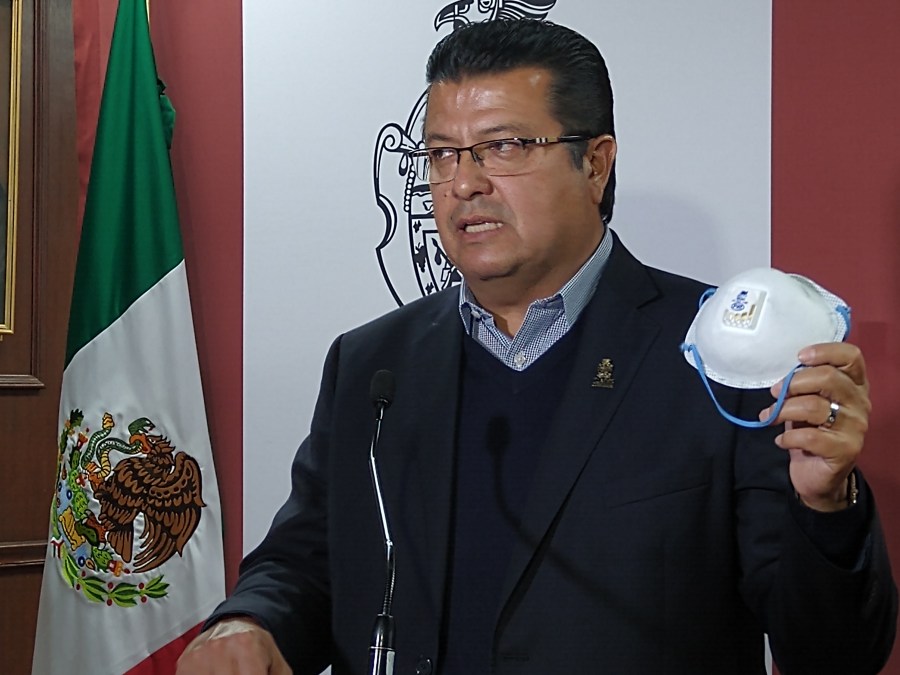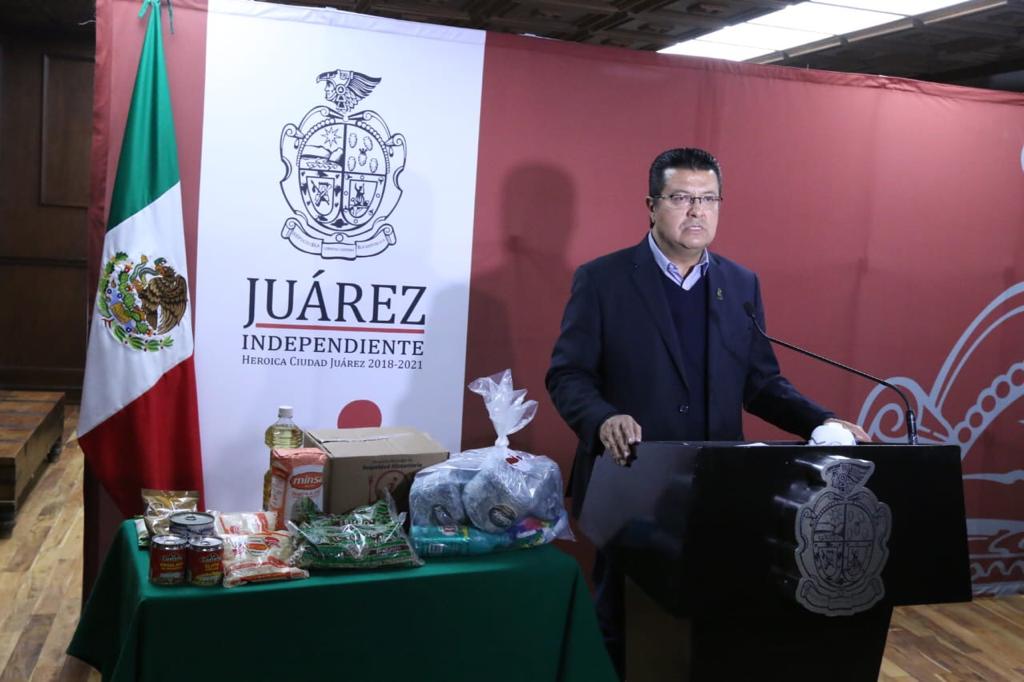EL PASO, Texas (Border Report) — As the number of COVID-19 cases continues to climb in El Paso, Mexican officials across the border in Juarez are preparing for the inevitable spread of the disease.
In a news briefing on Friday, Juarez Mayor Armando Cabada said his city is taking steps to cope with a “worst-case scenario,” in which local authorities would have to accommodate up to 2,500 victims.
That means enforcing “stay-at-home” measures similar to those already being observed in El Paso and finding resources to procure more hospital beds, surgical masks and ventilators.
Juarez moves to limit migrants at overcrowded border shelters
“We are talking worst-case scenario (but) this shows how important it is to prevent the spread and avoid a massive, abrupt outbreak that would cause our health care system to collapse,” Cabada said.
As of Friday afternoon, Juarez had four confirmed cases of COVID-19 — all travel-related — and seven suspected cases. El Paso Mayor Dee Margo said Friday that the toll in his city had climbed to 30 infected, up from 25 on Thursday.
Juarez has 956 hospital beds available in public and private hospitals, 29 isolation rooms and 29 acute-care beds. Cabada said the state of Chihuahua is working to procure more beds and ventilators, while the city would be distributing 5,000 N-95 surgical masks to healthcare workers.

El Paso Health Department Authority Dr. Hector Ocaranza also stressed the importance of abiding by the “Stay Home, Work Safe” campaign to avoid the so-called community transmission stage of the disease. That occurs when COVID-19 is spread to neighbors, co-workers and people in common areas, as opposed to El Pasoans catching it outside the city and bringing it home.
Ocaranza said the latest coronavirus cases were contracted either from travel or were family members of people already sick.
In El Paso, city officials said they were generally satisfied with compliance with the order but urged residents to work from home and only go out for essential errands. “If we see the virus spreads faster, then we will consider more drastic measures than the ones already in place. We all want to get back to normal” as soon as possible, Ocaranza said.
In Juarez, Cabada said his citizens could do more.
“It’s not that we’re saying it’s (the end of the world), but we’re not exempt that the same thing that’s happened in other places could happen here,” he said.
On Friday, the mayor met with restaurateurs and the Juarez Chamber of Commerce so they can spread the word among their members to close down or stay open only for take-out or delivery. “That represents only 10% of their income, but that’s all they’re authorized for now. They cannot have people come in to sit down and eat,” he said.
And while Americans will probably get cash from the federal government as part of the stimulus package approved by Congress and signed by President Donald Trump on Firday, the poorest Juarez residents will get food baskets.

Cabada said his Community Development Department and the Family Protection Agency would be distributing 50,000 food baskets and packs of cleaning products in the next few days in the city’s working-class neighborhoods.
He said he would ask his City Council to approve emergency funds to distribute another 50,000 baskets later.
Visit BorderReport.com for the latest exclusive stories and breaking news about issues along the United States-Mexico border.
















